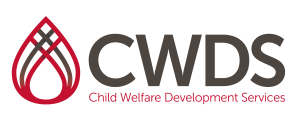CWDS Curriculum
The Other Side of ICWA
Level: Advanced Practice – Lineworkers, Supervisors and Managers
Credits: 6
Intended Audience: Child Welfare social workers, supervisors, managers, contract agency staff, and other professional such as advocates, attorneys and judges, who are working with Native American youth and communities
Intended Objectives:
- The trainee will understand the long term impact of Historical Trauma and Cumulative Collective Trauma on the culture of Native American youth and families.
- The trainee will be able to describe elements of culturally sensitive communications and engagement techniques.
- Given a case scenarios, trainee will demonstrate the use of culturally sensitive communication and engagement techniques.
- The trainee will be aware of how their personal values and bias may affect communication and engagement efforts.
Topics Include:
- Providing an experiential learning experience on the relevance of historical, cumulative, and collective trauma to working with Native American and communities.
- Helping to develop an understanding of Native American cultural and communications styles in relation to the non-tribal child welfare systems.
- Providing engagement techniques and strategies for identifying a Native American child, and for developing culturally appropriate resources and tools.
- Learning to value the application of principles of Fairness and Equity to skills and strategies in working with other culturally diverse families within child welfare systems.
CalSWEC Competencies Addressed:
1.1 Student demonstrates sensitivity to client’s differences in culture, ethnicity, and sexual orientation.
1.5 Student demonstrates the ability to collaborate with individuals, groups, community-based organizations and government agencies to advocate for equitable access to culturally sensitive resources and services.
3.4 Student demonstrates understanding of the influence of culture on human behavior and family dynamics.
5.3 Student demonstrates knowledge of the requirements of the Indian Child Welfare Act and is able to apply its provisions in working with tribal representatives.
6.6 Student works collaboratively with biological families, foster families, and kin networks, involving them in assessment and planning and helping them cope with special stresses and difficulties.
Posted In:Culture & Diversity



